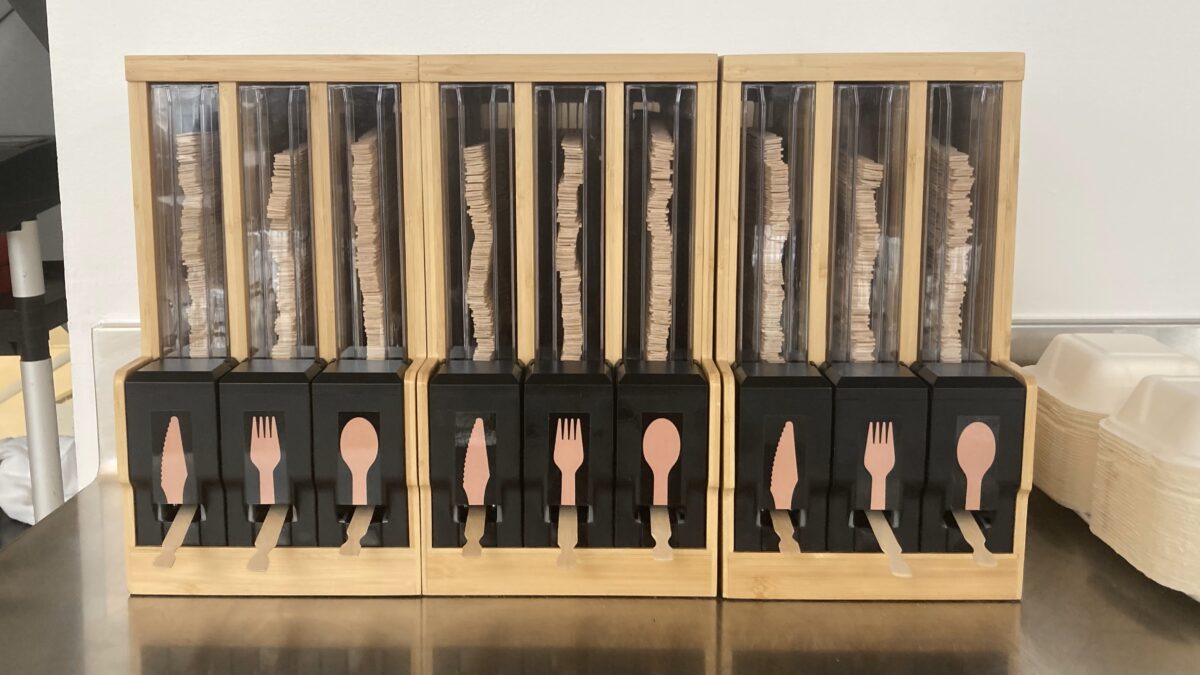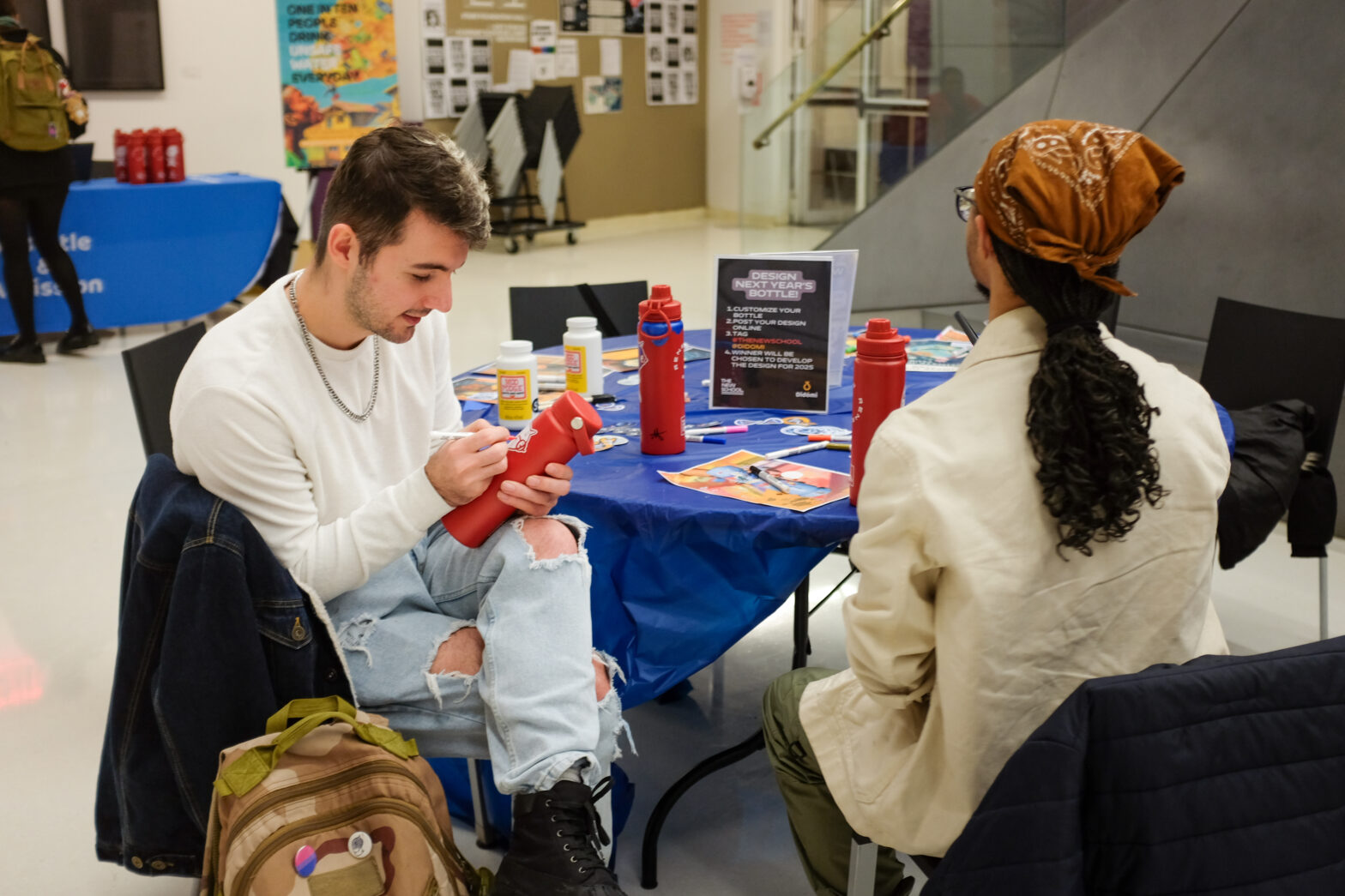As The New School’s halls became filled once more for the start of the spring semester, booths handing out free red water bottles popped up around campus. The bottles, among other newly available perks, are a part of the school’s RENEW sustainability campaign, which is intended to combat the impacts of single-use plastic on campus.
The university is partnering with the bottle company, Didomi, as a part of their campaign to bring almost 12,500 reusable bottles into the New School sphere, which the university predicts will avoid the use of more than 2 million plastic bottles on campus. So far, they have given away almost 4,000. Along with the free bottles, the school hosted “The Oasis,” a series of presentations on Didomi— their ethos, impact, and goals, as well as an interactive exhibit by Didomi, with a bottle customization station.
Additionally, the school is installing more water bottle refill stations, and replacing plastic utensils and bottles in the dining hall with more eco-friendly materials.

The RENEW campaign is an attempt to solve the “around two and a half million pounds of waste” that the university generates each year, as reported by The New School.
The Association for the Advancement of Sustainability in Higher Education gave The New School a score of 53.65 in 2021, for their Sustainability Tracking, Assessment, and Rating System, earning it the AASHE silver status. New York University and Columbia earned the gold status on their STARS report, with scores of 67.30 in 2020 and 65.89 in 2018.
The university is also implementing audits of its buildings and a Demand Response program. According to Kossokowski, Demand Response is a “voluntary incentive program” for preventing blackouts and brownouts (temporary dips in voltage) by reducing energy usage on “peak” energy days.
According to Kossokowski, the University Center was once a part of the program, but has not participated in “a number of years.” Kossokowski said the university “cannot guarantee a lot of notice.” The program gives anywhere from 1-24 hours notice and the school intends to place signage on affected buildings, as well as eventually releasing reports detailing how many emissions were avoided.
University Student Senate Chair Ahana Sharma said the senate was heavily involved in the planning process for RENEW. A committee of four senators including Adam Young, Jarmila Skare, Mckenna Merriman, and Sierra Simmons worked closely with interim president Donna Shalala and Mark Diaz, the interim Executive Vice President for Business and Operations.
“The collaborative spirit demonstrated throughout the planning stages ensures that The Single-Use Plastic Initiative is not just a symbolic gesture but a tangible commitment to creating positive change on our campus,” Sharma said. She and the rest of the USS are hoping to build momentum and make their message of sustainability last.
Yilin Li, a third year at Parsons, said she initially thought it was for school spirit, not sustainability.
“I think they have said they’re a big sustainability school but prior to bottles we haven’t seen that,” Li said. But she added that she thinks people will go back to using plastic bottles.
The USS intends to continue working with administration toward the goal of building a greener New School, though they currently have no solid plans for their future endeavors, according to Sharma.
The Didomi bottles will be available until March 1, but the hope for a long awaited permanent sustainable future at TNS continues. If administration follows through on the starting point they’ve established with RENEW, the green wave on campus could initiate a positive and long term system of change on campus.







